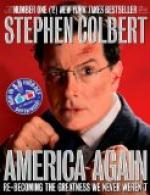Some people speak of the Fizzer’s luck, and say he’ll pull through, if any one can. It is luck, perhaps—but not in the sense they mean—to have the keen judgment to know to an ounce what a horse has left in him, judgment to know when to stop and when to go on—for that is left to the Fizzer’s discretion; and with that judgment the dauntless courage to go on with, and win through, every task attempted.
The Fizzer changes horses at Renner’s Springs for the “Downs’ trip”; and as his keen eyes run over the mob, his voice raps out their verdict like an auctioneer’s hammer. “He’s fit. So is he. Cut that one out. That colt’s A1. The chestnut’s done. So is the brown. I’ll risk that mare. That black’s too fat.” No hesitation: horse after horse rejected or approved, until the team is complete; and then driving them before him he faces the Open Downs—the Open Downs, where the last mail-man perished; and only the men who know the Downs in the Dry know what he faces.
For five trips out of the eight, one hundred and thirty miles of sun-baked, crab-holed, practically trackless plains, no sign of human habitation anywhere, cracks that would swallow a man—“hardly enough wood to boil a quart pot,” the Fizzer says, and a sun-temperature hovering about 160 degrees (there is no shade-temperature on the Downs); shadeless, trackless, sun-baked, crab-holed plains, and the Fizzer’s team a moving speck in the centre of an immensity that, never diminishing and never changing, moves onward with the team; an immensity of quivering heat and glare, with that one tiny living speck in its centre, and in all that hundred and thirty miles one drink for the horses at the end of the first eighty. That is the Open Downs.
“Fizz!” shouts the Fizzer. “That’s where the real fizzing gets done, and nobody that hasn’t tried it knows what it’s like.”
He travels its first twenty miles late in the afternoon, then, unpacking his team, “lets ’em go for a roll and a pick, while he boils a quart pot” (the Fizzer carries a canteen for himself); “spells” a bare two hours, packs up again and travels all night, keeping to the vague track with a bushman’s instinct, “doing” another twenty miles before daylight; unpacks for another spell, pities the poor brutes “nosing round too parched to feed,” may “doze a bit with one ear cocked,” and then packing up again, “punches ’em along all day,” with or without a spell. Time is precious now. There is a limit to the number of hours a horse can go without water, and the thirst of the team fixes the time limit on the Downs. “Punches ’em along all day, and into water close up sundown,” at the deserted Eva Downs station.




